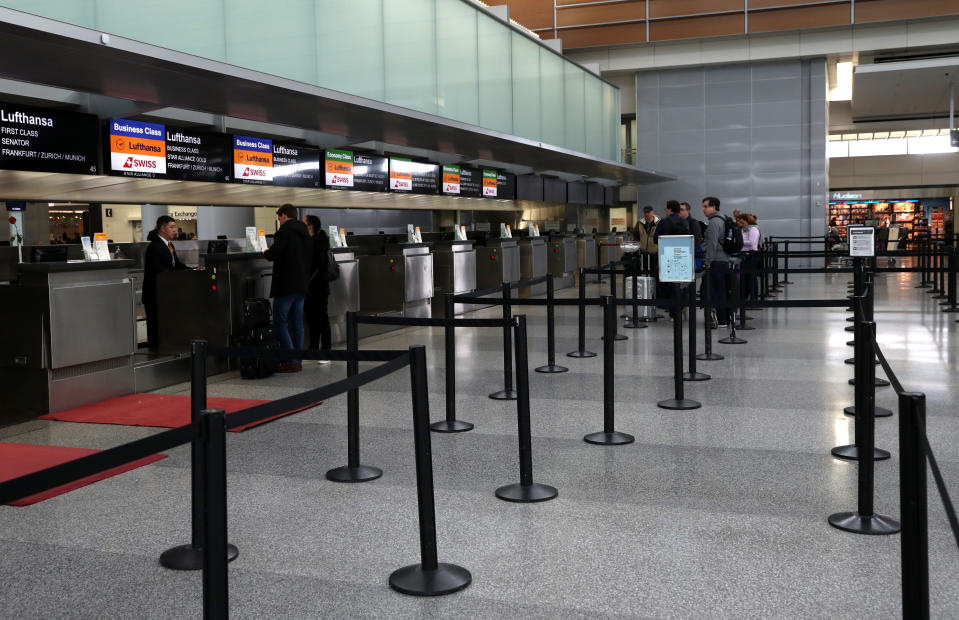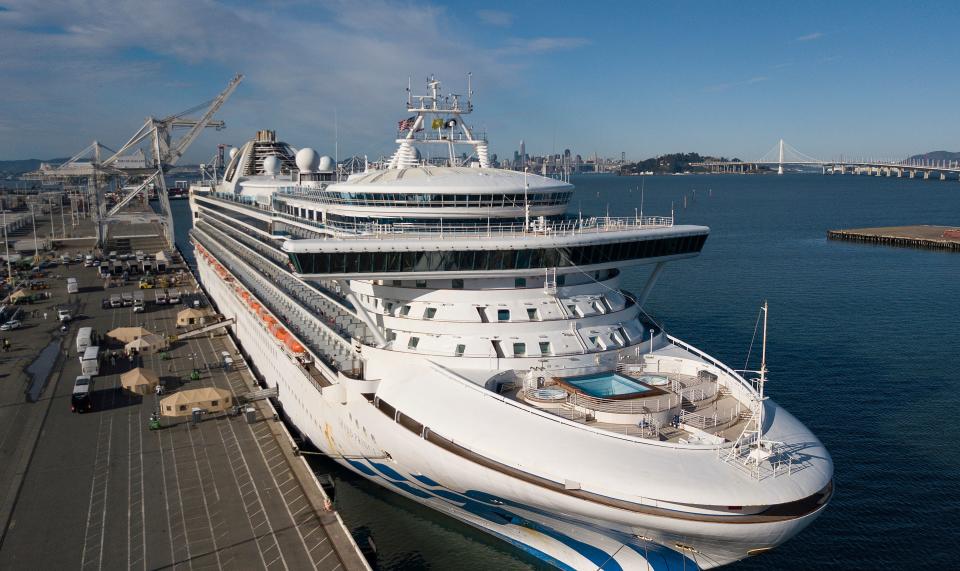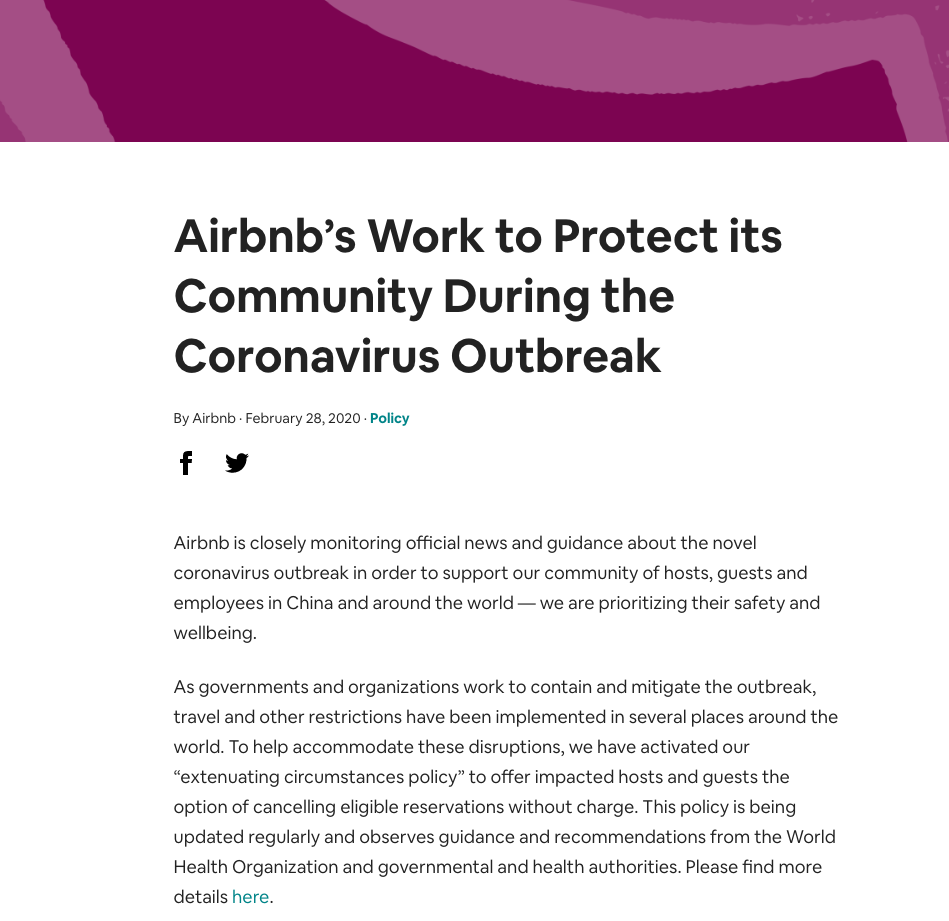Travel and coronavirus: What you need to know about canceling your reservations
We’re coming up fast on spring break, and many people have had their plans booked for weeks now. That can become a tricky dilemma in the age of coronavirus.
Currently, the Centers for Disease Control and Prevention (CDC) recommends that people avoid all non-essential travel to hot beds of COVID-19, like Italy, South Korea, Iran and China. If you do happen to visit one of those destinations, the CDC is recommending that you stay home for 14 days upon return. So there’s that.
As for other travel, the CDC is currently recommending that people avoid cruise ships, and that older Americans and people with chronic serious medical conditions — like lung disease, diabetes and heart disease — avoid “non-essential air travel.” The agency has stopped short of saying that everyone should limit travel. Still, many health experts note that nobody should take any chances.
“I would avoid non-essential travel at this time, and definitely avoid cruise ships at this time,” Rajeev Fernando, MD, an infectious disease expert in Southampton, NY, tells Yahoo Lifestyle. That’s especially true if you have a compromised immune system, he adds.
When you take all of that into consideration, it’s only natural to consider rethinking your plans. What does that mean for your reservations, though? Here’s what the major travel companies are doing about cancellations due to coronavirus.

Expedia
Expedia helps customers book a range of travel-related services, including flights, hotels and cruises, and it has a slightly different cancellation policy for each.
For flights: If you’re using a “low cost airline,” Expedia recommends contacting it directly. If you were planning to fly on a full-service airline, Expedia refers to the individual airline’s policy. American Airlines, for example, is not charging a “change fee” if you reschedule your flight before March 31 to be used at a later date, before Dec.31, 2020. If your airline has a policy and you had scheduled to travel within seven days, Expedia recommends that you call Expedia for help with a cancellation.
For cruises: Many cruise lines are offering relaxed cancellation policies, Expedia says, and recommends that people with booked cruises call or email their cruise experts, or contact the cruise line they’re booked with. Guests scheduled for a Disney Cruise, for example, can change their reservation up until the day they’re scheduled to embark, receiving a cruise credit to be used within a year.
For lodging: Expedia recommends logging into your account, going to My Trips, and changing or cancelling your booking online. If the place you were planning to stay charges a fee and your trip is scheduled for more than seven days away, Expedia recommends that you fill out a form online to see if the penalty can be waived. If you were planning to travel within the next seven days, you’ll need to call Expedia.

Airbnb
Airbnb has released an “extenuating circumstances policy” to allow impacted hosts and guests the option of canceling their reservation free of charge. However, not everyone is able to cancel without fees. You can cancel your trip free of charge if you meet the following criteria:
You’re traveling to or from severely impacted areas (listed as mainland China, Italy, and South Korea)
Hosts who are in or welcoming guests from severely impacted areas
Anyone who can’t complete their trip due to official travel restrictions, medical or disease control duties, flight or ground transportation cancellation initiated by the provider due to COVID-19, or suspected or confirmed cases of COVID-19
If you meet the critieria, Airbnb says you’ll receive a full refund, your hosts won’t have to deal with cancellation fees, and Airbnb will refund all fees. In a statement to Yahoo Lifestyle, a spokesperson says, “Our policy is being updated regularly and observes guidance and recommendations from the World Health Organization and governmental and health authorities."

VRBO
VRBO largely has customers deal directly with property managers. It first recommends canceling reservations within your traveler account, and contacting the property owner or manager to discuss their cancellation and refund policies. If you purchased travel insurance, it recommends contacting the insurance company directly. And, if you booked your reservation with a credit card, VRBO says you can contact your credit card company to see if it provides travel insurance.
But VRBO also says this online: “Please be aware that our Book with Confidence Guarantee is designed to protect you from fraudulent listings and misrepresentation. It does not cover cancellations due to travel advisories from force majeure.” (In case you’re not familiar with the term, “force majeure” means “unforeseen circumstances.”)
Following that, VRBO says that it “strongly recommends” that people follow health and safety information from health officials, as well as travel advisories.
If you do decide to travel, know that it may be more difficult than usual. “Anticipate longer screening procedures,” Fernando says. “Remember, airlines can still block your travel at the airport if you fail the screening procedures.”
Amtrak
The train company recently announced that it won't charge change fees on bookings that have been made through April 30, 2020. The company has also temporarily suspended three trains that operate between New York and Washington due to "lower demand," adding that additional changes to its schedule are "under consideration." Amtrak also stresses that it is using a cleaning service on trains and in stations "multiple times a day, and in some cases, on an hourly basis." The company also says it has increased the use of disinfectants to wipe down handrails, doorknobs, handles, and surfaces.
Read more from Yahoo Lifestyle:
Want daily pop culture news delivered to your inbox? Sign up here for Yahoo Entertainment & Lifestyle's newsletter.

